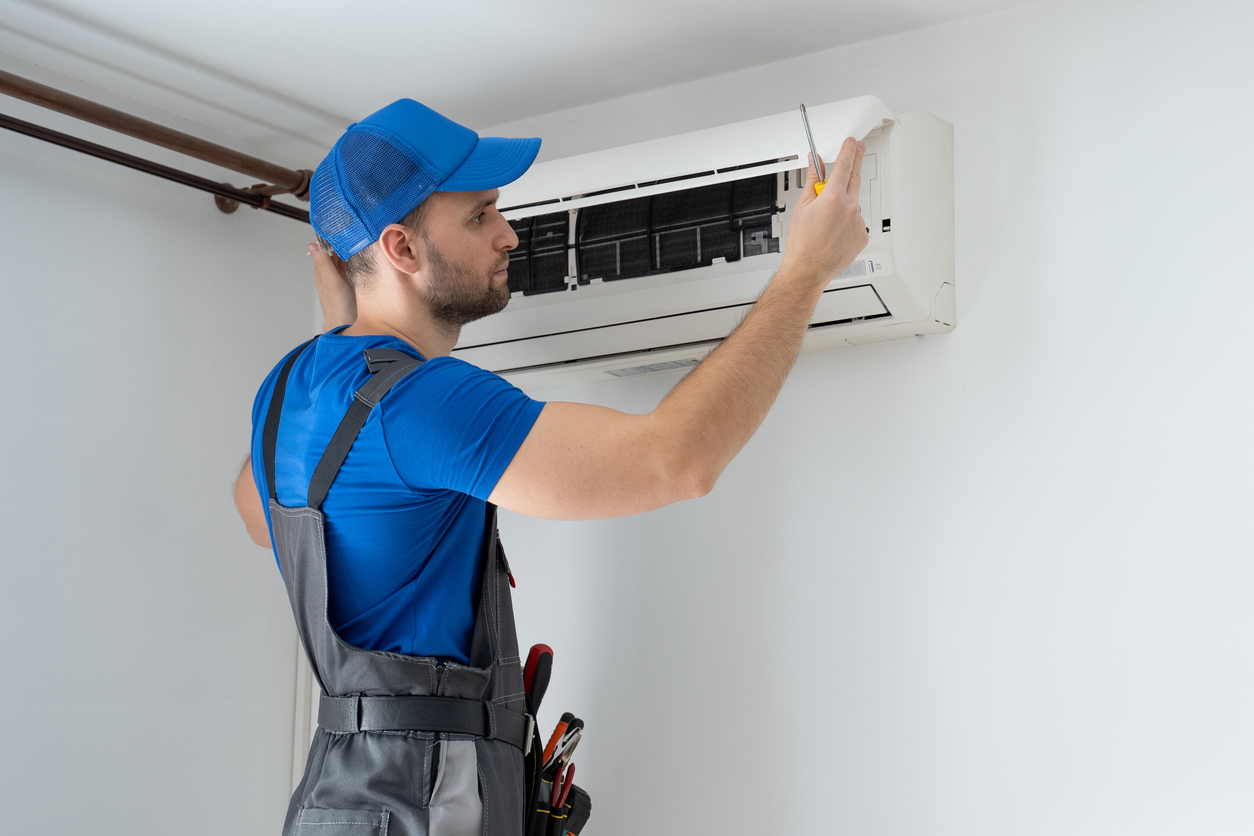Water leaking from your air conditioner is one of those things that makes Florida homeowners pause and panic—especially in the middle of summer when your AC is working overtime. It’s hot, it’s humid, and the last thing anyone wants is to deal with soggy floors, ceiling damage, or worse—mold.
Before you call a repair tech or assume your system is falling apart, take a breath and check the air filter. That small, often-forgotten piece of your AC setup might be doing more harm than you think. In fact, a dirty AC filter is one of the most common reasons AC units leak water, especially in humid places like Florida.
The Florida Factor: Heat + Humidity = Heavy AC Use
Florida’s climate creates the perfect storm for AC systems to run constantly. From March to November, it’s common for homeowners to have their units running nearly 24/7. All that use means more dust, pollen, pet hair, and moisture flowing through your system. And if you live near the coast? Add salt air and fine sand into the mix.
Over time, that buildup clogs your air filter. When airflow is blocked, your evaporator coil can freeze. Once it starts to thaw, all that ice turns into water—which can easily overflow your drain pan if the system can’t keep up.
That’s how a simple clogged filter turns into a ceiling leak in your living room.
What a Florida Leak Looks Like in Real Life
This happened to my neighbor in Sarasota just last July. She noticed a faint drip coming from her laundry room ceiling. At first, she thought it was a roof issue. A week later, the ceiling paint bubbled and cracked open. The culprit? A frozen AC coil, all thanks to a clogged filter that hadn’t been changed in six months.
She didn’t have pets or a dusty home—but her filter was caked with fine gray dust. And in Florida, where your unit handles heavy moisture daily, that’s all it takes to throw the system off balance.
What Happens Inside Your AC When the Filter’s Dirty
When your filter is clogged, airflow can’t reach the evaporator coil properly. That coil, which is supposed to absorb heat and release moisture, starts to get too cold. Ice forms around it. And when the system finally shuts off and the ice melts, that water has to go somewhere.
Normally, it drains into a pan and exits through a condensate line. But with too much water too fast—or if the drain pan is already full—that water can back up into the unit or overflow, leading to leaks.
In Florida’s high humidity, it doesn’t take long for that leak to cause real damage. Wet drywall, swollen baseboards, and black mold aren’t far behind if the leak isn’t caught early.
Prevention Is Easier Than Cleanup
This is where companies like ACFilter4Less come in. They make it easy to order replacement filters in bulk, so you always have one on hand. I’ve used them myself—they deliver straight to your door, and the quality holds up even with Florida’s heavy AC usage.
Swapping your filter every 30 days in summer—or every 60 days during milder months—can save you hundreds in repair costs. It also keeps your system running more efficiently, which can shave dollars off your electric bill.
How to Know When It’s Time to Change the Filter
If you’re in doubt, pull the filter out and hold it up to the light. Can’t see through it? Time for a change.
Also, pay attention to:
- Warm air coming from vents
- A musty smell from the AC
- More dust than usual on furniture
- A slight hissing or struggling sound when the system runs
These are subtle signs that your AC is choking for air—and a clean filter could be the quick fix.
Final Thought: A $10 Filter Can Prevent a $1,000 Problem
Florida homes rely on AC like lifeblood. And when leaks start, they rarely stay small. The good news? Preventing them is often as simple as keeping a fresh filter in place.
ACFilter4Less takes the guesswork out of staying on top of replacements, and in a state like Florida, that’s more than just convenient—it’s peace of mind.
Don’t wait until the ceiling starts dripping. Check that filter, change it often, and save yourself the stress, the mess, and the repair bill.



Comments